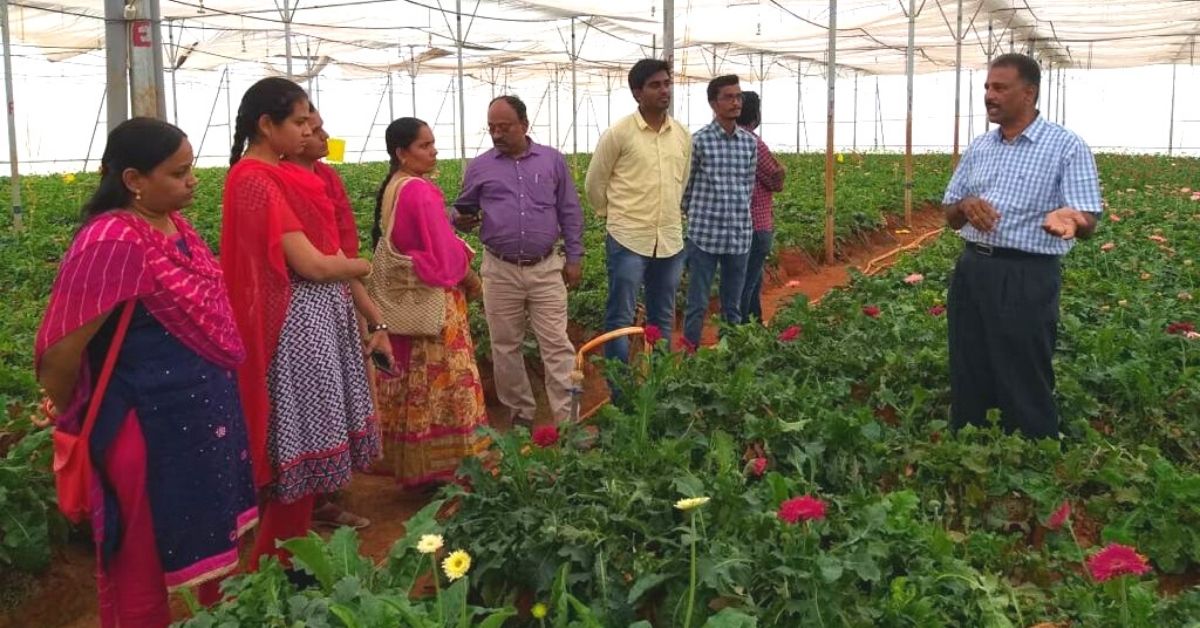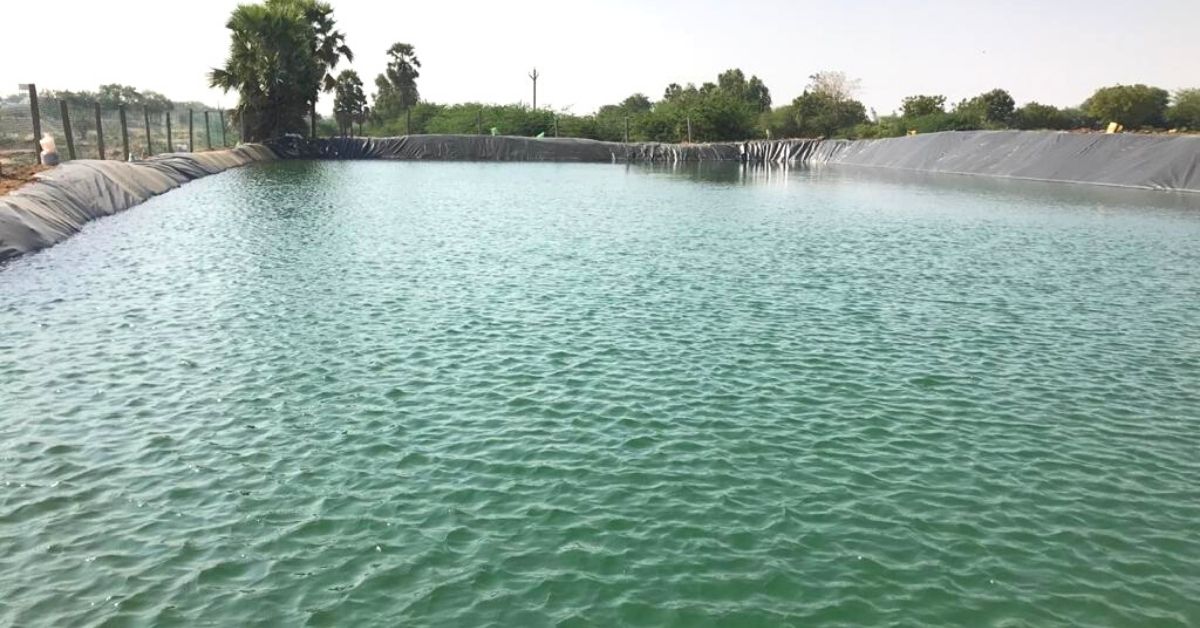In 2018, S Venkateswara Reddy from Hyderabad retired as a banker from the State Bank of India. As he relieved himself from the first innings of life, he planned to try his second stint with farming. But things didn’t turn out to be as easy as they seemed.
Venkateswara returned to ancestral land in Mallepalle village, only to find that the prospects looked bleak. The Ville fell in the Rayalaseema region, a drought-affected region of Andhra Pradesh.
“I had decided to grow vegetables and other crops on the 10-acre land. But when I reached the village and spoke to the farmers about procuring resources, I faced a massive challenge. The villagers informed that there had been no water in the area for over a decade,” Venkateswara tells The Better India.
Moreover, he learned that the farmers could hardly take one crop a year. “The agriculture depended entirely at the mercy of rains. No rains and no crops had become a normal practice,” he says.
At present, Venkateswara has not only solved his own water crisis, but also benefited 30 farmers with the help of canal irrigation. The move allows them to take two and sometimes even three assured crops on 800 acres of land a year.
Using his banking experience in farming

The 63-year-old says, “Once I learned about the water crisis in the area, I began exploring ways to solve it. A few villagers told me that the Handri-Neeva Water Canal, the nearest water source, was about 2.5 km away from the village. The canal enabled irrigating the farmlands in the vicinity,” he adds.
He says that channelising a pipeline and diverting a portion of the resource towards the farm could make the water accessible. “I discussed the solution with the farmers and appreciated the suggestion. However, they admitted to having contemplated the idea before, but reluctant to bear the expenses,” he adds.
Venkateswara estimated the costs, which panned around Rs 1 lakh for each farmer, and suggested that they procure loans. “There were disagreements. Without feeling demotivated, I decided to go ahead with the plan by procuring a loan. Also, the laying of a pipeline towards my farm meant that a portion of it passed through a few farmers’ land. We came to a mutual agreement that they allow me to place the pipeline in exchange for water,” he says.
However, looking at the promising prospects, other farmers in the area eventually came around. Initially, 17 farmers agreed, and 13 others joined later, agreeing to work with Venkateswara. They sought loans worth Rs 30 lakh, and he signed as a guarantor to assure security to the bank.
The money sanctioned was used to dig trenches, lay PVC pipes and buy diesel engines to lift the water from the pipeline to irrigate the farms. It became a success.
Criticisms turn into appreciation

At present, farmers take one crop between January and December, while others do so in the remaining months, depending on their choice of crops.
G S Sanjeeva Rayudu, a childhood friend of Venkateswara’s and a retired railway police inspector, says, “The village was neglected by politicians for development and faced other local issues. Venkateswara faced flak, criticism and even opposition from farmers when he proposed the idea. Locals also cautioned him not to risk his position when he opted to become a guarantor for the farmers. But he continued to have faith. The farmers were slowly convinced and began seeing the benefits of his efforts.”
Sanjeeva adds that the assured irrigation helped farmers grow vegetables such as brinjal, onion, guava, okra and cultivate crops including cotton and groundnut. “Earlier, cultivation was only limited to groundnut, jowar and pulses. But now, the farmers can grow whatever they wish,” he says.
He says that about 70% of the agricultural land has come under pipeline irrigation in a village with a population of 1,000. “Now the farmers appreciate the work and support him for other initiatives for the village,” Sanjeeva says.

Venkateswara says that earlier, income was unsteady as the entire crop or harvest could be lost with poor rainfall or even delays. However, the irrigation system comes as a life saver to protect the crops that are at risk of being destroyed due to uncertain rain. “A farmer earns assured Rs 35,000 profits from an acre of growing cotton,” he adds.
Venkateswara says that, like others, he is also the son of a farmer and understands their issues. “It is a difficult region due to geography and other social factors. But I am determined to work for the betterment of the farming community and will continue doing the same,” he adds.
Edited by Divya Sethu
No comments:
Post a Comment